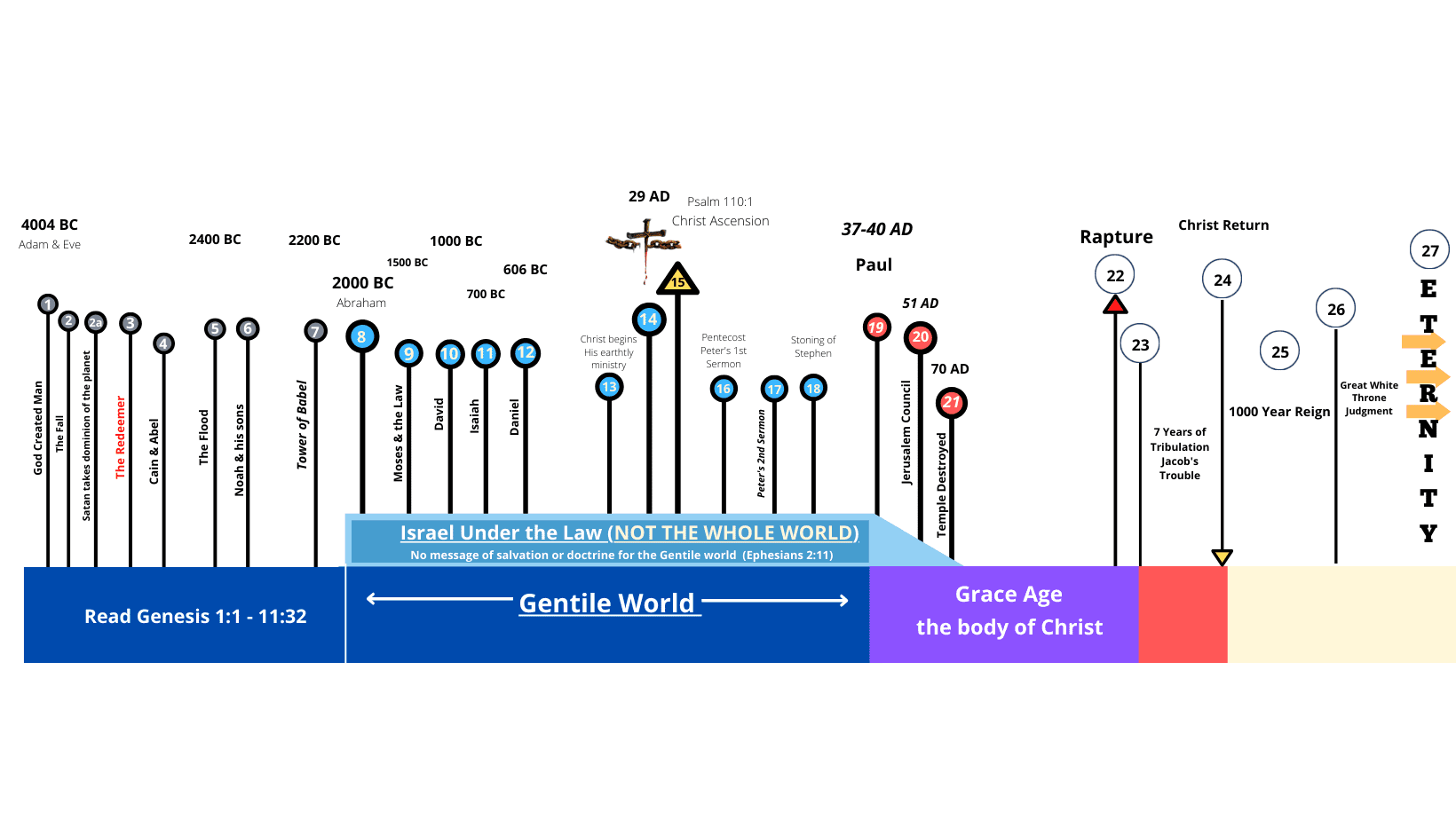
by Jamie Pantastico | Dec 19, 2022 | Daily Encouragement |
If you or if you know someone who is struggling with the pain of a broken heart and discouragement, no matter the cause, the only true comfort is in Jesus Christ and His word.
Believers already have (past tense) victory and salvation through faith alone in the gospel. But in our daily experience, we will face trials and tribulations. That’s where the study of His word and prayer becomes the believer’s only source of comfort, strength, and encouragement.
Here are five bible passages that will bring comfort, strength and encouragement to the brokenhearted:
Number One – Psalm 34:18: “The Lord is close to the brokenhearted and saves those who are crushed in spirit.”
This verse reminds us that God is near to us in our pain and is ready to rescue and heal us.
Number Two – Isaiah 41:10: “So do not fear, for I am with you; do not be dismayed, for I am your God. I will strengthen you and help you; I will uphold you with my righteous right hand.”
This verse encourages us not to fear or be discouraged but to trust in God’s presence and strength.
Number Three – John 16:33: “I have told you these things, so that in me you may have peace. In this world you will have trouble. But take heart! I have overcome the world.”
In this verse, Jesus reminds us that we will face difficulties in this world, but he has already overcome the world (by the finished work of the cross) and offers us peace and comfort in the midst of our struggles.
Number Four – Romans 8:28: “And we know that in all things God works for the good of those who love him, who have been called according to his purpose.”
This verse reminds us that God is sovereign and that he works everything together for good for those who love him and are called according to his purpose.
Number Five – 2 Corinthians 12:9: “But he said to me, ‘My grace is sufficient for you, for my power is made perfect in weakness.’ Therefore I will boast all the more gladly about my weaknesses, so that Christ’s power may rest on me.”
In this verse, Paul teaches that God’s grace is sufficient for him and that God’s power is made perfect in our weakness. This can be a comforting reminder that even in our pain and struggles, God is with us and can bring strength and victory.
I hope these bible passages bring encouragement and hope as you face difficult times. May God’s love and grace bring you comfort and strength through difficult times.

by Jamie Pantastico | Dec 19, 2022 | Daily Encouragement |
Here are 5 encouraging promises from Romans chapter five that will lift your spirits.
1. We have peace with God through Jesus Christ:
In Romans 5:1, Paul writes, “Therefore, since we have been justified through faith, we have peace with God through our Lord Jesus Christ.” This means that through faith in Jesus, we are reconciled with God and no longer separated from him by our sin.
2. We have hope in God’s love:
In Romans 5:5, Paul writes, “And hope does not put us to shame, because God’s love has been poured out into our hearts through the Holy Spirit, who has been given to us.” This means that we can have confidence in God’s love for us, even when we struggle or face difficult circumstances because the Holy Spirit testifies to it in our hearts.
3. We can rejoice in suffering:
In Romans 5:3-4, Paul writes, “Not only so, but we also rejoice in our sufferings, because we know that suffering produces perseverance; perseverance, character; and character, hope.” This means that even when we face suffering, we can find hope and purpose in it because it can help us grow and mature in our faith.
4. We are saved by grace:
In Romans 5:8, Paul writes, “But God demonstrates his own love for us in this: While we were still sinners, Christ died for us.” This means that we are saved not by our own merit or works, but by God’s grace and the sacrifice of Jesus on the cross.
5. We have been reconciled to God:
In Romans 5:10, Paul writes, “For if, while we were God’s enemies, we were reconciled to him through the death of his Son, how much more, having been reconciled, shall we be saved through his life!” This means that through Jesus’ death and resurrection, we have been brought back into a right relationship with God, and we can have hope for eternal life with him.

by Jamie Pantastico | Nov 27, 2022 | Daily Encouragement |
When someone abandons you at a time when you needed their support, it can be incredibly emotionally painful, as anyone who has gone through this can confirm. Abandonment conveys the hurtful message that “you’re not worthy of attention because you lack value.” However, it’s essential to recognize that you are entirely deserving of meaningful connections, and God Himself longs for a genuine, personal relationship with you; and it is our relationship with Christ that matters most!
Family, friends, colleagues, and mankind in general will fail you, NOT GOD!
It’s crucial to realize that experiencing abandonment doesn’t cast a shadow on your character. Instead, it reflects the actions of those who abandoned you, serving as a mirror of their father Satan, as described in John 8:44, who seeks to steal, kill, and destroy (John 10:10). Even though you can’t alter the past, you have a chance to start fresh today. Consider the empowering words of Paul in Philippians 3:13.
‘Brethren, I do not count myself to have apprehended; but one thing I do, forgetting those things which are behind and reaching forward to those things which are ahead, ‘
Philippians 3:13
The God of the Bible values and loves you because He created you. He genuinely cares for you, He sent His only Son, Jesus Christ, Who died for you and He gave you His Word—the Bible—to guide you through everything in life, even being abandoned.
Here are scriptures to help you with abandonment:
‘Let your conduct be without covetousness; be content with such things as you have. For He Himself has said, “I will never leave you nor forsake you.” ‘
Hebrews 13:5
‘What then shall we say to these things? If God is for us, who can be against us? He who did not spare His own Son, but delivered Him up for us all, how shall He not with Him also freely give us all things? Who shall bring a charge against God’s elect? It is God who justifies. Who is he who condemns? It is Christ who died, and furthermore is also risen, who is even at the right hand of God, who also makes intercession for us. Who shall separate us from the love of Christ? Shall tribulation, or distress, or persecution, or famine, or nakedness, or peril, or sword? As it is written: “For Your sake we are killed all day long; We are accounted as sheep for the slaughter.”’
Romans 8:31-36
‘Yet in all these things we are more than conquerors through Him who loved us. For I am persuaded that neither death nor life, nor angels nor principalities nor powers, nor things present nor things to come, nor height nor depth, nor any other created thing, shall be able to separate us from the love of God which is in Christ Jesus our Lord.’
Romans 8:37-39
‘When my father and my mother forsake me, Then the Lord will take care of me.’
Psalms 27:10
‘He shall cover you with His feathers, And under His wings you shall take refuge; His truth shall be your shield and buckler.’
Psalms 91:4
‘and you are complete in Him, who is the head of all principality and power.’
Colossians 2:10
Healing and Moving On Begins with Forgiving
We forgive! Because we know why they do what they do. They are enemies of God. And we are to forgive them just as the Lord has forgiven us.
Easier said than done, no doubt. Even though we are a new creation, believers experience the same emotions as the rest of the world. In other words, as believers, we still get brokenhearted and feel alone. But we are NEVER alone, we must ALWAYS return to God’s Word and pray. And God “WILL” comfort us and direct our paths.
‘And be kind to one another, tenderhearted, forgiving one another, even as God in Christ forgave you.’
Ephesians 4:32
‘bearing with one another, and forgiving each other, whoever has a complaint against anyone; just as the Lord forgave you, so also should you. ‘
Colossians 3:13

by Jamie Pantastico | Nov 17, 2022 | Daily Encouragement |
Romans 4:13
“For the promise, that he should be the heir of the world, was not to Abraham, or to his seed, through the law, but through the righteousness of faith.”
Abraham’s faith and salvation were well before the Mosaic law came on the scene. Approximately 500 years before the law was given to Moses (see chart below).
Abraham’s believed what God said
Genesis 15:1-5
‘After these things the word of the Lord came to Abram in a vision, saying, “Do not be afraid, Abram. I am your shield, your exceedingly great reward.” But Abram said, “Lord God , what will You give me, seeing I go childless, and the heir of my house is Eliezer of Damascus?” Then Abram said, “Look, You have given me no offspring; indeed one born in my house is my heir!” And behold, the word of the Lord came to him, saying, “This one shall not be your heir, but one who will come from your own body shall be your heir.” Then He brought him outside and said, “Look now toward heaven, and count the stars if you are able to number them.” And He said to him, “So shall your descendants be.”’
‘And he believed in the Lord, and He accounted it to him for righteousness.’
Genesis 15:6

‘For if those who are of the law are heirs, faith is made void and the promise made of no effect, because the law brings about wrath; for where there is no law there is no transgression.’
Romans 4:14-15
In other words, if we work for our salvation (because of the demands of the law) our faith is meaningless. Similarly, another biblical passage comes to mind. Turn to Galatians 4:4 and recall that this letter was sent specifically to the Gentiles at the church in Galatia, reminding them that they were not under the Law, but rather Grace. Remember that the Judaisers (Acts 15:1-5) sought to subjugate them to the law. Therefore, the purpose of this letter was to demonstrate to these Gentile believers that they were not under the Law but rather under Grace. Paul compares Isaac and Ishmael in this passage. Ishmael was fleshly, earthly, and not of the spiritual seed or the promises that Isaac possessed.
Galatians 4:30,31
“Nevertheless what saith the scripture? Cast out the bondwoman and her son (Hagar and Ishmael, they stood for the Law, the flesh): for the son of the bondwoman shall not be heir with the son of the freewoman (they could have no interrelationship). So then, brethren, we are not children of the bondwoman, but of the free.”
The Conclusion
Is summed up clearly in Galatians 5:1.
Galatians 5:1
“STAND fast therefore in the liberty wherewith Christ hath made us free, and be not entangled again with the yoke of bondage. Behold, I Paul say unto you, that if ye be circumcised (and you can put in there anything that man can do to merit Salvation. In Paul’s day it was circumcision, today it is many other things), Christ shall profit you nothing.”


by Jamie Pantastico | Oct 29, 2022 | Daily Encouragement |
Ephesians 2:14a
“For He (Christ) is our peace,…”
Tonight, the world is desperate for peace, mankind in general, and between nations. That’s the goal of all politicians, the United Nations, and Middle East efforts, peace. The truth of the matter is, there will be no peace until the Prince of Peace Himself returns.
In terms of the individual’s pursuit of peace, though, the same holds true. There can be no peace until we have peace with God, and the only way to obtain it is by faith alone in the gospel alone described in I Corinthians 15:1-4. Mankind’s sin has alienated him from God, and the purpose of the entire Bible is to reconcile us with God. When discussing spiritual peace, we must look back to the Romans. The book of Romans is the foundation of our Christian doctrine. And clearly delineates mankind’s only path to true peace.
Romans 5:1
“Therefore (because what Paul wrote in chapter 4) being justified by faith (Alone like Abraham in Romans 4:4), (Go back to Romans 3:19 ) we have peace with God through our Lord Jesus Christ:”
That’s what the world is looking for. “Peace with God.” When you have peace with God then you have peace with everyone else. Now verse 2.
Romans 5:2
“By whom (the Lord Jesus and His finished work of the cross) also we have access by faith (taking God at His word) into this grace (unmerited favor) wherein we stand and rejoice in hope of the glory of God.”
There is only one path to Peace and that is through Christ Jesus our Lord
Ephesians 2:14
“For He is our peace, who hath made both one, (Jew and Gentile, this wasn’t the case until Paul comes on the scene) and hath broken down the middle wall of partition between us;”
During this Church Age, the age of grace, Jews and Gentiles are now united. It is crucial to know that this has not been the case until God calls Paul to be the apostle to the Gentiles (around 37 AD). In fact, let us examine 1 Corinthians 12 for a moment. The book of Ephesians builds on the foundations laid by the Romans, Corinthians, and Galatians. Now let’s look at 1 Corinthians 12:12.
I Corinthians 12:12
“For as the body (the human body) is one, and hath many members, and all the members of that one body, being many, are one body (both Jew and Gentile come into the body of Christ the same way, by believing by faith alone in the gospel of grace alone): so also is Christ. (or the Body of Christ, the One True Church.)
Now verse 13, the emphasis here is that this is not a water baptism. This is the only Holy Spirit baptism that we as believers enjoy today. In fact, Paul says in Ephesians 4:4-5 that there is only one baptism. This is the only baptism for grace-age believers and here it is.
I Corinthians 12:13
“For by one Spirit are we all (not just some of the Pastors or the theologians, but all are) baptized into one body, (the Body of Christ) whether we be Jews or Gentiles, whether we be bond or free; and have been all (our status in life makes no difference, if we believe the gospel by faith alone, we’ve all been) made to drink into one Spirit.”
The Holy Spirit has therefore baptized each of us who make up the Body of Christ into that Body. There is no water used in this process; the Holy Spirit is the only agent. We now occupy a place that God has set aside for us from the beginning of time. He made this place ready for us because He knew we would believe the gospel.
The Middle Wall Has Been Broken Down
Ephesians 2:14b
“…and hath broken down the middle wall of partition between us;” (between Jews and Gentiles)
We now know that before the temple in Jerusalem was destroyed in 70 AD, there was a dividing wall that prevented Gentile proselytes from worshiping in the same area as Jews. The best description of a proselyte comes from the Lord Jesus Himself when He told the Jews this in Matthew 23 and verse 15.
Matthew 23:15
“Woe unto you, scribes and Pharisees, hypocrites! for ye compass sea and land to make one proselyte, and when he is made, ye make him twofold more the child of hell than yourselves.”
The proselyte embraced the religion of Judaism, but they were separated from having any contact with the Jews by that dividing wall. Take note of what Paul says happened to that wall. “That dividing wall has been totally dismantled. It’s destroyed, it’s broken down.
Like, Share, and Comment. Download our Mobile APP to get full the full verse-by-verse study on the book of Ephesians. It’s absolutely free!






